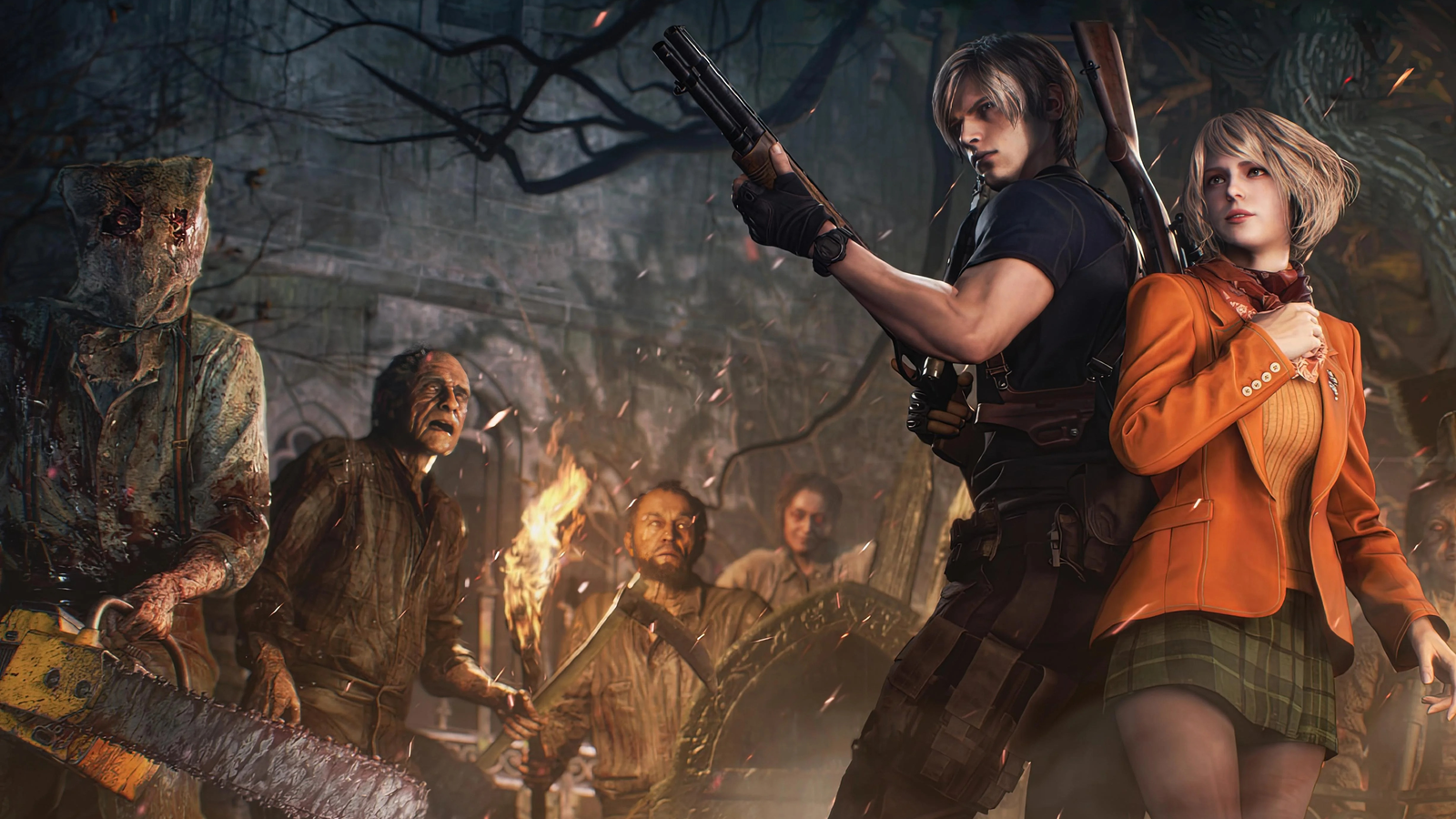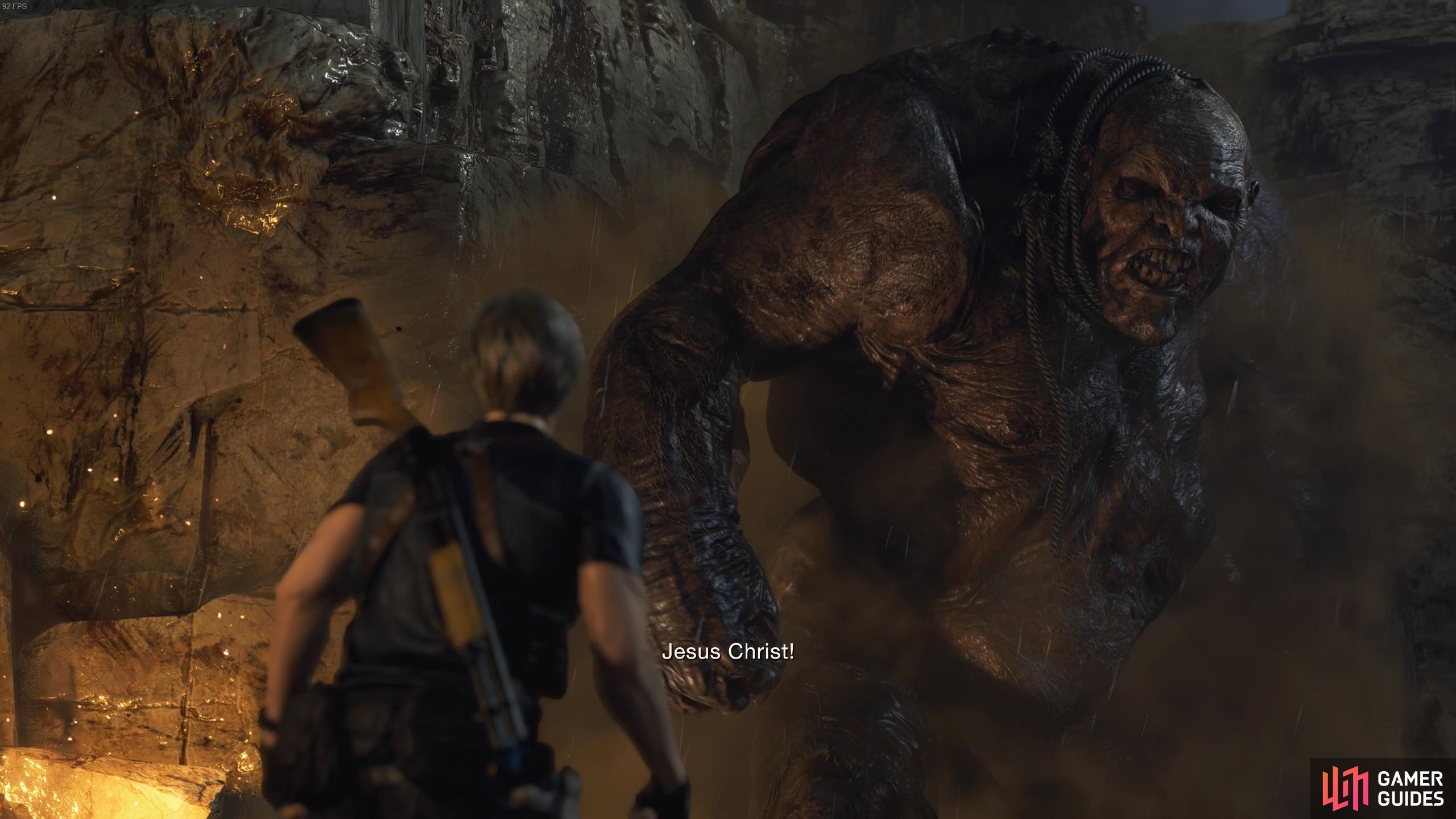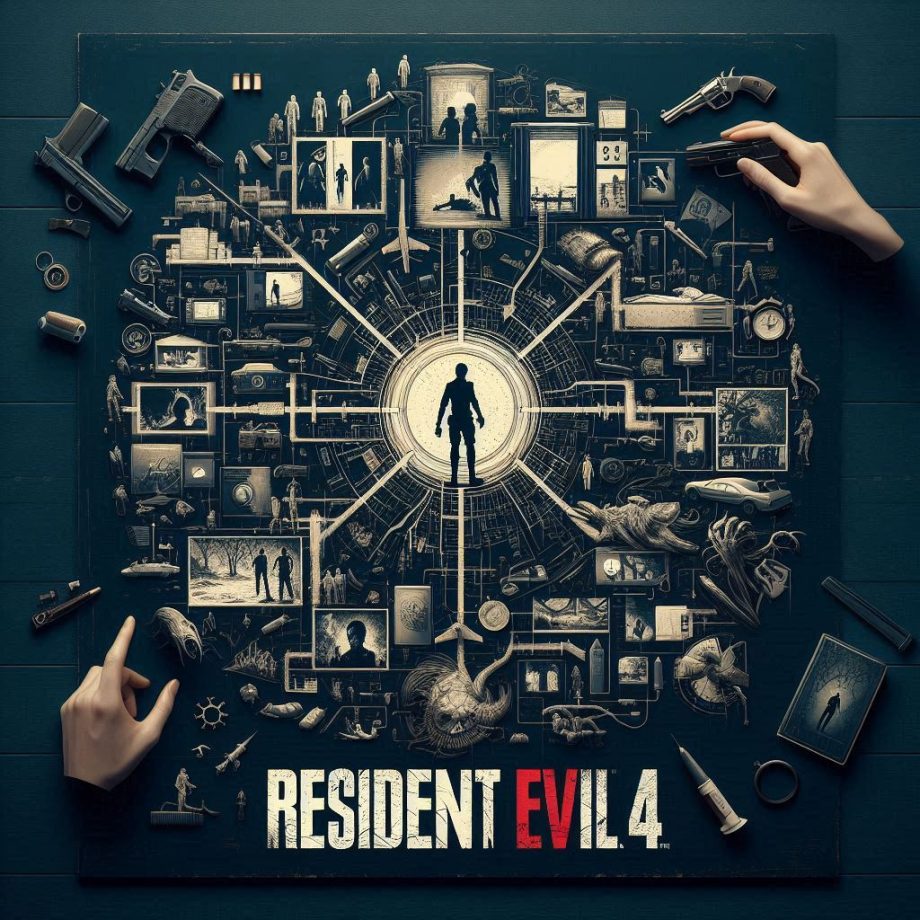why Resident Evil 4 Remake remains a gaming masterpiece 19 years later. Dive into its timeless design, narrative purity, and enduring challenge that defies modern trends
Table of Contents
- 1. Social Media’s Impact on Gaming Depth
- 2. Classic Storytelling Over Fake RPG Fluff
- 3. Timeless Design vs. Trend-Chasing
- 4. Long-Term Challenge Matters
- Conclusion: Why RE4 Remake Endures
Reading time: 18 mins

1. Social Media’s Impact on Gaming Depth
The rise of TikTok, Instagram Reels, and Twitter/X threads has rewired how we consume media. Platforms prioritize bite-sized, algorithm-friendly content that delivers instant gratification—think 15-second clips, listicles, and spoiler-heavy “explainers.” This culture of **instant consumption trains audiences to crave brevity over depth, speed over immersion. For gaming, this creates a paradox: while modern players demand cinematic quality and innovation, their shrinking attention spans pressure developers to simplify storytelling, shorten playtimes, or prioritize flashy set-pieces over meaningful depth

1. Narrative Compression
Games increasingly adopt “skipable” dialogue or minimalist plots to avoid losing impatient players. Compare this to Resident Evil 4 Remake, which retains its campy yet intricate story, rewarding players who engage with lore-heavy files, environmental storytelling, and character dynamics.
2. Gameplay Snackability
Many modern titles lean into repetitive, dopamine-driven loops (e.g., live-service battle passes) instead of layered mechanics. RE4 Remake defies this by blending survival horror, strategic combat, and exploration—systems that require patience but deliver unmatched satisfaction.
3. Spoiler Culture Kills Discovery
Social media thrives on leaks and spoilers, reducing games to bullet points. *RE4 Remake’s tension relies on unpredictability: the first encounter with a Regenerator, the dread of limited saves, or the shock of a mutated villain. These moments lose impact when reduced to a viral clip.W
Why Resident Evil 4 Remake Succeeds in a Fast Content World
Capcom’s remake doesn’t cater to short-form trends—it weaponizes depth to remind players why some experiences demand time:
– Pacing Mastery: The game balances explosive action with quiet, atmospheric stretches, rewarding players who invest in its rhythm.
– Mechanical Richness: Every system (crafting, parrying, inventory management) feeds into a cohesive, immersive loop—no feature exists just for “content.”
– Nostalgia with Purpose: It respects the original’s depth while modernizing it, proving that timeless design transcends trends.
The Takeaway for Developers
While studios chase viral moments, RE4 Remake shows that depth creates legacy. Players might scroll past spoilers, but they’ll remember the adrenaline of surviving a village siege or the satisfaction of solving a cryptic puzzle. In an era of disposable content, games that prioritize substance over speed carve their place in history—and that’s why, 19 years later, this remake still reigns.
2. Classic Storytelling Over Fake RPG Fluff
In an era where games often pad themselves with superficial RPG mechanics—meaningless dialogue choices, hollow skill trees, or illusory “branching paths”—Resident Evil 4 Remake stands as a defiant ode to focused, intentional storytelling. Unlike modern titles that conflate “player agency” with bloated systems, Capcom’s remake trusts its original vision: a tightly scripted, linear narrative where every beat, character, and twist serves a purpose. Here’s why this approach not only honors the 2005 classic but elevates the remake into a timeless experience.
The Problem with “Fake RPG” Trends
Many modern games, even outside the RPG genre, shoehorn in mechanics that imply depth but deliver little:
- Illusory Choices: Dialogue wheels that change nothing (Mass Effect 3’s ending debacle taught us this lesson, yet the trend persists).
- Filler Progression: Skill trees that offer “+5% damage” upgrades instead of meaningful playstyle shifts.
- Blind Replay Bait: “Multiple endings” that require tedious replays for minor variations.
These systems often exist to tick marketing checkboxes (“50 hours of content!”) or chase trends, diluting the core narrative. They cater to a culture obsessed with quantity of “content” over quality of experience.
Resident Evil 4’s Narrative Strength: No Fluff, All Focus
The RE4 Remake discards modern pretenses of “player freedom” and doubles down on what made the original iconic: a lean, atmospheric, and masterfully paced story. By avoiding fake RPG elements, it achieves something rare in today’s gaming landscape:
- Laser-Sharp Pacing:
From Leon’s quippy one-liners to the haunting descent into Los Iluminados’ lore, every moment is meticulously crafted. There’s no filler—no “choose between saving the village priest or the farmer” side quests to pad runtime. The story moves with the urgency of a survival thriller, and you’re along for the ride. - Character Over Checklists:
Characters like Luis Sera, Ashley Graham, and the iconic Merchant aren’t defined by “relationship meters” or fetch quests. Their personalities shine through scripted interactions and environmental details (e.g., Luis’ lab notes, Ashley’s resilience in combat). You learn who they are by experiencing the story, not managing menus. - Tension Through Limitation:
Without skill trees or dialogue options, the game forces you to engage with its world on its terms. The terror of facing Verdugo in the freezing chamber isn’t diluted by a “stealth build” or a pacifist route. You survive by adapting to the game’s rules, not bending them—a design philosophy that amplifies immersion.
A Counterargument to “Player Agency” Obsession
Critics might argue that linear narratives feel “outdated” in an age of open worlds and branching stories. But RE4 Remake proves that constraints breed creativity. By removing distractions, the game:
- Preserves Tone: The campy B-movie horror/comedy blend never clashes with “serious” choices.
- Guarantees Payoff: Every set piece (the cabin siege, the regenerator lab) is engineered for maximum impact, unburdened by variables.
- Respects Your Time: No 100-hour grind—just 15-20 hours of curated, unforgettable moments.
Even the remake’s updates (expanded lore, character backstories) feel purposeful, not tacked-on. For example, Luis’ expanded role adds emotional weight without resorting to BioWare-style “approval” systems.

3. Timeless Design vs. Trend-Chasing
In an industry obsessed with chasing trends—battle royales, live-service grind, and “open-world everything”—Resident Evil 4 Remake stands out by doing the opposite: refining its core instead of reinventing it. While many modern games cram in mechanics to stay relevant (NFTs, seasonal passes, or roguelike modes), Capcom’s remake doubles down on what made the original a landmark. Here’s how its gameplay philosophy defies modern fads and secures its place as a timeless classic.
The Problem with Trend-Chasing in Modern Games
Today’s studios often prioritize novelty over polish, leading to:
- Feature Bloat: Games like Suicide Squad: Kill the Justice League awkwardly force live-service elements into single-player narratives.
- Identity Crisis: Franchises like Saints Row (2022) lose their soul by chasing “modern humor” or superficial customization.
- Short-Term Engagement: Mechanics designed to addict, not satisfy (endless loot tiers, FOMO-driven events).
These trends cater to algorithms and investor calls, not players. The result? Games that feel disposable, forgettable, or worse—cynical.
Resident Evil 4 Remake’s Secret: Perfecting the Formula
Instead of chasing trends, RE4 Remake polishes its 2005 blueprint to near-flawless execution. Its design ethos focuses on depth over novelty:
- Combat as Art
- The original’s over-the-shoulder aiming revolutionized third-person shooters. The remake sharpens this with modern parrying, stagger mechanics, and visceral enemy reactions. Every shot matters, and fights demand strategy (e.g., using grenades to crowd-control or shooting knees to save ammo).
- Compare this to modern shooters like Redfall, where generic gunplay feels secondary to open-world busywork.
- Inventory Tetris: A System That Matters
- The attache case isn’t just nostalgia—it’s a brilliant risk/reward tool. Do you prioritize healing items, ammo, or treasure? Modern games often automate inventory (The Last of Us Part II), but RE4 forces you to think, creating tension even in quiet moments.
- Pacing Without Padding
- The game never overstays its welcome. Set pieces like the cabin siege or minecart sequence are intense but brief, avoiding the fatigue of endless open-world “clearing camps” chores (Assassin’s Creed Valhalla).
- No Microtransactions, No Grind
- Unlockables (the PRL 412, Chicago Typewriter) are earned through skill, not credit cards. In an era where even single-player games like Dead Space Remake add cosmetic shops, RE4’s purity feels radical.
Why “Old-School” Design Feels Fresh in 2023
By rejecting trend-chasing, RE4 Remake taps into a growing player fatigue with:
- Endless Games: Not every title needs to be a 100-hour slog. A focused 15-hour experience (with New Game+ incentives) respects players’ time.
- Artificial Difficulty: No “bullet sponge” enemies here—difficulty comes from resource scarcity and intelligent AI (e.g., Ganados flanking or snatching Ashley).
- Predictability: Modern games often feel algorithmically designed (Far Cry 6). RE4’s surprises (Regenerators, Del Lago) stay shocking because they’re handcrafted, not procedurally generated.
The Bigger Lesson: Trust the Gameplay
Resident Evil 4 Remake proves that great mechanics transcend eras. While studios scramble to add “innovative” features (AI companions! Dynamic weather!), Capcom focused on:
- Player Agency Through Systems: You’re not “making choices” in dialogue trees—you’re making them in combat, inventory, and exploration.
- Replayability Built on Fun: New Game+, Mercenaries Mode, and unlockable weapons reward mastery, not grind.
- Respect for the Player’s Intelligence: No quest markers or hold-to-win QTEs. The game expects you to learn, adapt, and survive.

4. Long-Term Challenge Matters
In an era where games often prioritize instant gratification—participation trophies, auto-saves, and “pay-to-skip” microtransactions—Resident Evil 4 Remake dares to demand effort, patience, and growth from its players. Unlike modern titles that conflate “accessibility” with hand-holding, Capcom’s remake thrives on systems that reward long-term investment. From its brutal Professional Mode to its infinitely replayable New Game+, RE4 Remake isn’t just challenging—it’s designed to stay challenging, creating a loop where mastery feels earned, addictive, and deeply personal. Here’s how it turns difficulty into a legacy.
The Illusion of “Challenge” in Modern Gaming
Many contemporary games pay lip service to difficulty but fail to create meaningful stakes:
- Artificial Walls: Grindy level gates or loot tiers that inflate playtime without depth (Diablo IV’s endgame).
- Checkpoint Spam: Games like Star Wars Jedi: Survivor let players respawn mid-fight, reducing tension.
- Monetized Mastery: “Skip this boss!” purchases in Assassin’s Creed or Final Fantasy undermine skill-building.
These trends cater to fleeting engagement, not lasting satisfaction. They’re challenges designed to be consumed, not overcome.
Resident Evil 4 Remake’s Philosophy: Earn Your Survival
The remake’s brilliance lies in systems that scale with the player, ensuring that even veterans face new tests. This isn’t just “hard for hard’s sake”—it’s a carefully crafted ladder of skill:
- Professional Mode: No Mercy, No Compromise
- Enemies hit harder, resources are scarcer, and autosaves are disabled. This mode strips away modern crutches, demanding pixel-perfect parries, ammo conservation, and map knowledge. Unlike “bullet sponge” difficulty in games like The Division, RE4’s challenge is strategic, not statistical.
- New Game+: The Ultimate Power Fantasy
- Carry over weapons, upgrades, and gear to replay the campaign—but with twists. Enemies are repositioned, ambushes are deadlier, and the game expects you to leverage your arsenal creatively. It’s not a victory lap; it’s a gauntlet that tests your mastery of mechanics (e.g., using the Bolt Thrower to save ammo or the Broken Butterfly to stagger bosses).
- The Mercenaries Mode: Score Attack as Art
- This arcade-style mode ranks players globally, emphasizing precision, crowd control, and risk-taking. Unlike live-service leaderboards cluttered with microtransaction boosts (Call of Duty), RE4’s rankings are pure skill—no wallet warriors here.
- Unlockables That Matter
- Rewards like the Handcannon (earned by S-ranking all Mercenaries stages) or the Chicago Sweeper (Professional Mode completion) aren’t cosmetics—they’re tools that redefine gameplay. They turn subsequent playthroughs into playgrounds for experimentation, not chores.
Why This Long-Term Challenge Works
RE4 Remake avoids the fatigue of modern “endless games” by making progression meaningful, not mandatory:
- Skill Over Stats: You don’t “level up” Leon—you level up. Learning enemy patterns (e.g., Ganados’ grab animations) or mastering knife parries transforms you from prey to predator.
- Dynamic Tension: Even with maxed-out gear, surprises lurk. A wrong turn in the castle can still drain your resources, and the Regenerators’ lab stays terrifying on the 10th playthrough.
- Community as Competition: Speedruns, no-heal runs, and knife-only challenges thrive because the game’s systems are transparent and fair. Compare this to RNG-heavy games like Destiny 2, where luck often trumps skill.
A Counterargument to “Casualization”
Critics might argue that RE4 Remake’s difficulty alienates casual players. But Capcom sidesteps this by:
- Layered Difficulty Options: Assisted Mode helps newcomers, while Professional Mode humbles experts.
- Rewarding Curiosity: Finding hidden treasures or optimizing routes (e.g., saving rocket launchers for Verdugo) feels like cracking a puzzle, not grinding.
- Respect for Failure: Death isn’t a punishment—it’s a teacher. Each reload forces you to rethink strategy, not just repeat a checkpoint.
The Bigger Picture: Challenge as a Love Letter
Resident Evil 4 Remake’s enduring difficulty isn’t sadistic—it’s a testament to trust in the player. In a world where games like Hogwarts Legacy prioritize mass appeal over depth, Capcom’s refusal to dilute its challenge sends a message: You’re capable of more.
Nineteen years later, players still chase that adrenaline rush—the thrill of surviving a village siege with one bullet left, the pride of S-ranking Mercenaries, or the joy of finally outsmarting Krauser’s knife fight. These aren’t fleeting dopamine hits; they’re milestones in a relationship between game and player. And that’s why RE4 Remake isn’t just played—it’s studied, mastered, and remembered.
Conclusion: Why RE4 Remake Endures
Nineteen years after its debut, Resident Evil 4 Remake isn’t just a relic polished for nostalgia—it’s a defiant manifesto for what games should be. In an industry increasingly fractured by trend-chasing, algorithmic pandering, and the tyranny of “content,” Capcom’s masterpiece stands as a beacon of intentional design, proving that depth, craftsmanship, and respect for the player will always outlive gimmicks.
The remake’s triumph lies in its refusal to compromise:
- It rejects short-form culture by demanding immersion, rewarding patience with layered storytelling and mechanical richness.
- It discards fake RPG bloat to deliver a narrative that’s lean, purposeful, and unforgettable.
- It ignores trend-driven fluff, opting instead to refine a combat and exploration loop that remains unmatched.
- It embraces challenge as a language of respect, trusting players to grow rather than bribing them to stay.
While modern games often feel like products designed by committee—stuffed with live-service hooks, spoiler-fed marketing, and meaningless “player choice”—RE4 Remake feels like a game designed by people who love games. It’s a reminder that the medium’s magic lies not in chasing what’s viral but in perfecting what’s timeless.
The lesson here isn’t that “old games were better.” It’s that great design is eternal. Whether it’s the adrenaline of a perfectly parried chainsaw, the dread of hearing “¡Detrás de ti, imbécil!” echo in a village square, or the satisfaction of cracking a puzzle that outsmarted you a decade ago, RE4 Remake taps into something universal: the joy of being challenged, immersed, and trusted.
As we scroll past yet another TikTok recap of a game’s plot or groan at a $20 “time-saver” bundle, Capcom’s remake asks a radical question: What if games didn’t treat us like distracted customers, but like partners in craft?
Nineteen years later, the answer is clear. While trends fade and hashtags vanish, Resident Evil 4 Remake endures—not because it’s “retro,” but because it’s right. And in a world starving for substance, that’s the ultimate survival horror.


